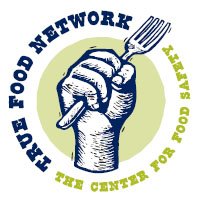 Groups to Introduce Similar Cloned Food Labeling Bill Next Legislative Session
Groups to Introduce Similar Cloned Food Labeling Bill Next Legislative SessionSan Francisco—The Center for Food Safety and Consumers Union today sent a letter to Governor Schwarzenegger and members of the California Legislature challenging Governor Schwarzenegger’s recent veto of the California Cloned Food Labeling Act (SB 63). The bill, introduced by Senator Migden, would have required labeling of milk, meat and dairy products from cloned animals. The letter criticizes the Governor’s claim that SB 63 is pre-empted by federal law, calling this reasoning “legally unsound, disingenuous and inaccurate.” A copy of the letter can be found at: http://www.centerforfoodsafety.org/pubs/CA_cloning_letter.doc
The groups pledge to help introduce a similar cloned food labeling bill in California in the next legislative session. Federal law applies only to meat, not dairy products. The Governor’s veto only referred to the federal meat labeling law, a tacit acknowledgement of this fact. “Currently there is a blank slate in the area of food from cloned animals, and state lawmakers can create dairy labeling statutes without fear of federal preemption,” explained Rebecca Spector, Center for Food Safety’s West Coast Director.
Experts say milk, cheese and other dairy products from cloned animals will be the first such food products to reach California stores, and will make up the vast majority of the cloned food market.
There are two federal laws that address meat labeling. However according to the two groups, they do not preempt cloned meat labeling in California. “Neither of these laws even mentions cloned meat, so they simply don’t apply,” Spector said.
“Governor Schwarzenegger’s veto is a slap in the face to a majority of consumers who say they want milk and meat from cloned animals to be labeled,” said Elisa Odabashian, Consumers Union’s West Coast Director. “Without labeling, not only will consumers be unable to choose whether or not to buy cloned food, but government food safety agencies will be unable to track any long-term impacts of cloned food on human health.” According to a recent survey by Consumers Union, more than 89 percent of Americans want food from cloned animals to be labeled.
At the federal level, the groups, along with, the Consumer Federation of America, Farm Sanctuary, Food & Water Watch, the Humane Society of the United States, the American Anti-Vivisection Society, and Union of Concerned Scientists, are also urging the inclusion of a recent amendment concerning food products from cloned animals in the 2007 Farm Bill (H.R. 2419). Amendment No. 3524, introduced by Senators Mikulski and Specter, would ensure that the potential human health, animal health, and economic impacts associated with animal cloning that are missing from the FDA’s risk assessment are fully analyzed before any products derived from clones are introduced into the food market. The organizations are deeply concerned over the Food and Drug Administration’s issuance of an inadequate draft risk assessment that endorses the safety of milk and meat derived from cloned animals and their progeny.
The issuance of the final risk assessment, which could happen as early as January, 2008, would pave the way for the unfettered commercialization of meat and milk from cloned animals without labeling requirements.


